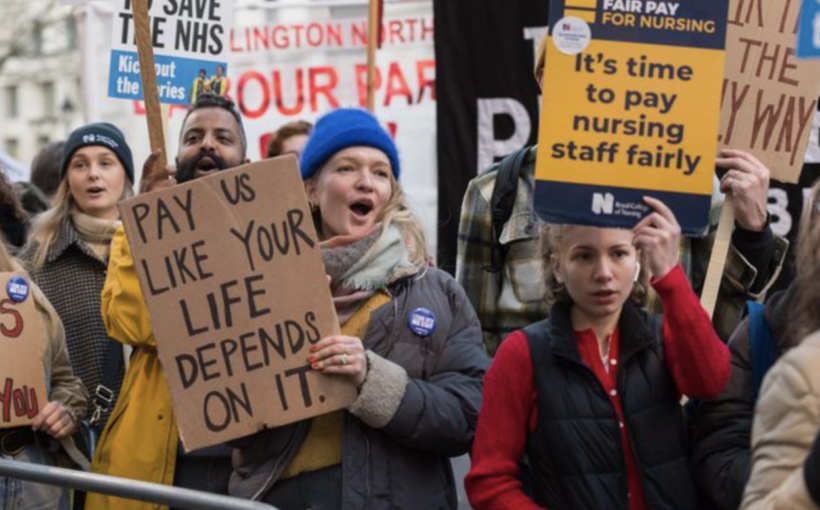 Ministers have come under fire for claiming that public sector pay increases demanded by trade unions would cost the economy £28 billion — or £1,000 for every UK household.
Ministers have come under fire for claiming that public sector pay increases demanded by trade unions would cost the economy £28 billion — or £1,000 for every UK household.The UK’s official statistics watchdog has reprimanded the Treasury over figures it has used in the row against striking public sector workers.
The government is grappling with industrial action on multiple fronts as rail workers, nurses and postal workers all go on strike to demand better pay and working conditions amid the cost of living crisis.
Ministers have come under fire for claiming that public sector pay increases demanded by trade unions would cost the economy £28 billion — or £1,000 for every UK household.
A number of organisations, including the Institute for Fiscal Studies and Full Fact, have questioned the figures and the calculations used to arrive at them.
Last week, Labour MP Angela Eagle weighed into the debate by asking Sir Robert Chote, the chair of the UK Statistics Authority, to verify the figures.
The former minister said she believed the figures were “inaccurate” and that the government was using “deliberately inflated figures”.
And now the UK Statistics Authority has concluded that the calculations “include a number of judgements and assumptions that others might wish to debate”.
In its response to Eagle, Chote wrote: “As a number of commentators – including from the Institute for Fiscal Studies and Full Fact – have pointed out, these calculations include a number of judgements and assumptions that others might wish to debate, including the choice of inflation adjustment, whether to include the impact of increased tax and national insurance payments by public sector workers, and whether it is appropriate to quote an average sum across all households when the impact would be felt differentially depending on household income and other factors.
“Given the judgements and assumptions involved, it would clearly have been desirable… for the government to have explained clearly and accessibly how such a high-profile number had been calculated as soon as it was put into the public domain, allowing MPs and commentators to debate them in an informed way from the outset.
“My office has engaged with the Treasury to make this point.”
When approached to justify its calculations, the government said it looked at the total cost of public sector salaries for 2021 to 2022, which came to £233 billion.
It then increased that by around 5% to reflect pay deals for 2022-23, which gives a figure of £245 billion.
The government analysis then takes 11% of that figure reflecting the most recent CPI inflation figure for October.
That brings the total to £27 billion, while another £1 billion comes from “assumptions on pay drift and workforce growth”.
The £28 billion is then divided by the 28 million households in the UK, giving the £1,000 per household.
However, the BBC’s calculations said the figures were too high.
It took the public sector pay bill of £233 billion alongside an inflation rate of 10% for 2022-23, meaning a pay rise in line with inflation would cost about £23 billion overall and £820 per household.
Responding to the body’s statement, Eagle told HuffPost UK: “I am pleased to see the UK Statistics Authority engage with the Treasury to remind them of the importance of transparency and accountability, especially concerning figures built upon questionable ‘assumptions and judgements’.
“As the authority has highlighted, the prime minister’s assertion that public sector pay increases would cost £28 billion extra has been manufactured through calculations that rest on a number of misleading ‘assumptions and judgements’.
“Estimates produced by the Institute for Fiscal Studies suggest that the cost of increasing public sector pay in line with inflation would be around £13 billion – far lower than the government’s widely parroted figure.
“It is clear that the government is choosing to bake dodgy assumptions into their calculations to inflate figures for their own political gain.”
She added: “It is critical that the government, and the prime minister, can be trusted to use accurate figures, based on sound evidence.”
Asked to comment, a Treasury source pointed to the existing calculations and said they had been worked out and published in response to a parliamentary question.
Source: Huff Post



